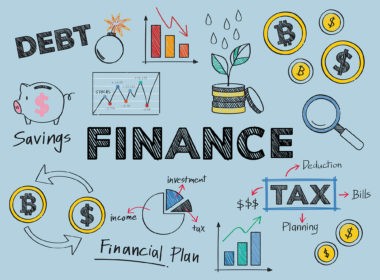Navigating the stock market during economic uncertainty can feel like steering a ship in bad weather. Volatility creates situations where investors rush to protect their portfolios.
The fundamental aspect of investor psychology is loss aversion. Protecting our investments is always more important than pushing toward risk for a chance to gain.
This is where defensive stocks come into play. By definition, they offer a stable and reliable investment option.
Market downturns have happened in the past, and will occur in the future. These stocks are known for their resilience during such downturns, acting as an anchor during a storm.
We look into why defensive stocks are considered such a safe bet, and how they perform compared to other modes of investment.
Understanding Defensive Stocks
Defensive stocks are usually from companies that offer fundamental services. This can be essential services like healthcare and utilities. No matter what the economic conditions are, people would still require heat, electricity, healthcare, and water.
This makes defensive stocks less sensitive to economic cycles, a buffer against unpredictable market fluctuations.
The Reasons Defensive Stocks Outperform During Uncertainty
Providing Steady Revenue Stream
Companies that are in fundamental services, that is, the defensive sectors, tend to have a stable and recurring revenue stream.
Whenever there is a cyclic contraction in the economy, the businesses that are in energy, power, and healthcare maintain a steady cash flow. The reason is that their products and services remain essential to everyone.
Investment in such stocks can, therefore, provide a degree of financial tranquility and stability.
Low Volatility
The value of a defensive stock generally does not plummet as drastically as other stocks from other sectors, like the banking sector or airline stocks. For example, certain growth stocks, like the technology sector, experience sharp, heart-stopping swings.
Defensive stocks do not move that dramatically, both in the bear and bull phases. This means that they do not scale up at the same level as growth stocks during bull markets. But that’s why they are not growth stocks in the first place.
Investors looking for stable returns can take advantage of the resilience of defensive stocks, in any market phase. They are able to balance their portfolios with these stocks, as they reduce the overall risk.
Dividend Income Stability
Many defensive stocks also pay hefty dividends, notes Bank of America. These payments offer a predictable source of passive income even if the stock prices are going up and down.
For instance, investing in companies that pay dividends regularly allows investors to receive returns through quarterly or annual payouts. The record of Canadian Utilities dividend over the years shows the importance of choosing the right investments for your portfolio.
ValueTrend suggests that including these dividend-paying stocks in a portfolio is a way to mitigate risk, enhancing long-term stability. This is even more pronounced when market conditions are volatile.
Dividend income acts like a safety net, providing cash flow irrespective of how the market is behaving.
Key Defensive Stocks to Consider
Not all defensive stocks are the same, and certain sectors can perform better during the cyclic downturns.
If we go by past performance, there are some key sectors of defensive stocks to consider:
Utilities
Utility companies provide essential services like electricity, water, and gas. These services are basic needs that are fundamentally required by all. Therefore, the demand for these services remains stable, no matter what the economic conditions are.
According to Yahoo Finance Canada, this sector in the country has a reputation for consistently paying and growing their dividends. The same applies for American investors.
Healthcare
Even during economic downturns, healthcare stocks remain stable. People would need prescription drugs and medical care, no matter where the stock market swings. Companies in healthcare that manufacture medical supplies or provide medical services would not be affected much.
With an aging global population, healthcare services will have a consistent demand in the coming years as well.
Groceries and Household Items
Companies that produce essential groceries and household items like food, eggs, and beverages are a good pick. These are part of the consumer staples, as people continue to purchase them even in challenging economic times.
Internet and Telephony
Communication is a fundamental need. Communication services have consistent demand during any economic downturn. In fact, as the pandemic proved, people demand communication services more when they spend their time working from home.
A Long Term Strategy
Dividend-paying defensive stocks are great for uncertain times, but they are a great long-term investment option, too. It’s an intelligent combination of dividend income and capital appreciation in the long run.
Even during periods of economic stability, defensive stocks can be part of the investment portfolio to make it robust.
Navigating economic uncertainty is not easy, and requires a mature approach towards investing. Defensive stocks are a great option to protect your portfolio and also get returns.












